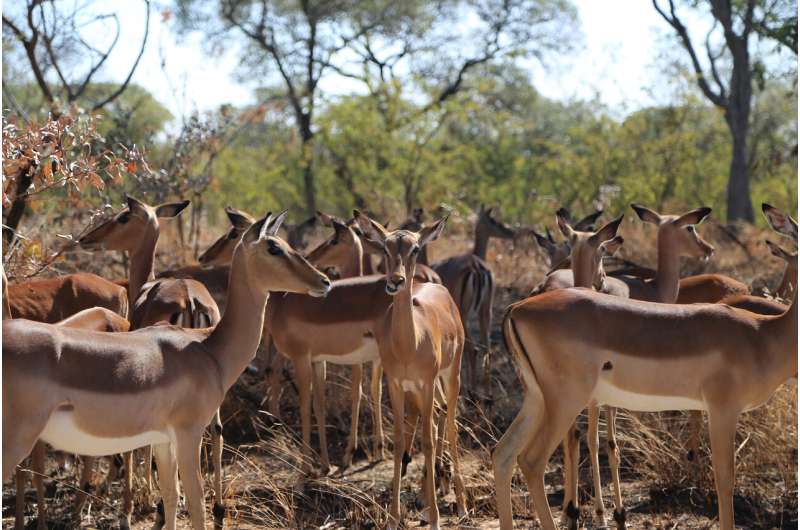October 5, 2020 report
Study shows that African herbivores that eat mixed diets or migrate have more stable populations

A pair of researchers, one with Yale University, the other the University of the Witwatersrand, reports that African herbivores that eat mixed diets or migrate have more stable populations than do those who eat just one food and do not migrate. In their paper published in the journal Science Advances, A. Carla Staver and Gareth Hempson describe two theories to predict population stability for African herbivores, how they tested their theories, and what they found.
As the researchers note, African savannas host the world's largest megafaunal communities, but as they also note, populations of most of the endemic species are in decline due to a host of factors including diseases, drought and human encroachment. And while these factors have been extensively studied, one that has not is animals' diets. In the savannah, there is more to eat than just grass: there are also small trees and shrubs, and some animals diversify their diet by eating from more than one source. In this new effort, Staver and Hempson theorized that those animals with more diverse diets likely had more stable populations than those that did not. They also suspected that another factor might be in play: whether animals moved to new locations to find food, a form of migration.
To test their theories, the researchers obtained and analyzed herbivore population data from 18 preserves across the African continent. They compared those animals that fed on just one type of plant to those with a more varied diet. They found that animals that fed on both grasses and shrubs, such as the impala, maintained population levels better than animals such as buffalos, which fed only on grass. They also found that animals such as the wildebeest that travel to find new food sources also maintained their populations better than did those that did not migrate and fed on a single food source. The researchers also found that body size did not appear to play a role in helping to preserve population levels. They suggest that diet be included as a population stability factor by animal management teams.
More information: A. Carla Staver et al. Seasonal dietary changes increase the abundances of savanna herbivore species, Science Advances (2020). DOI: 10.1126/sciadv.abd2848
Journal information: Science Advances
© 2020 Science X Network



















